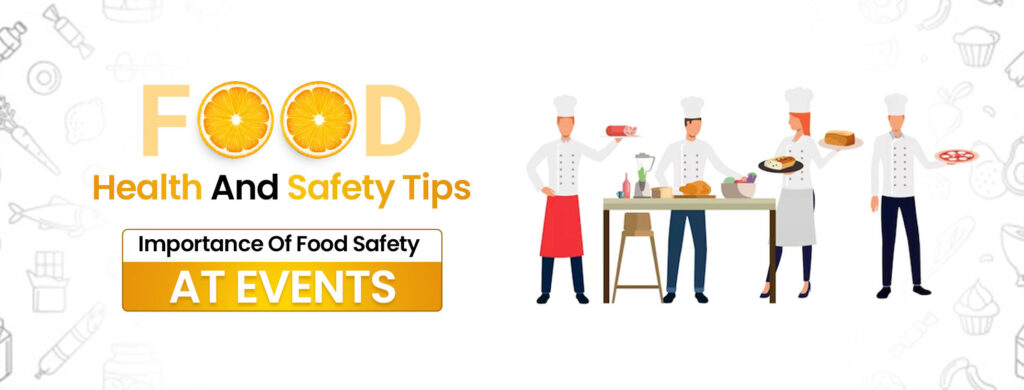
- Ranjith
- July 3, 2023
- 5:31 pm
Many people look forward to the food served on occasion almost as much as the event itself. And a lot many are also concerned about food health and safety checks and tips being taken care of and understand the importance of food safety events.
Thus, protecting the health and safety of all attendees requires strict attention to food safety precautions at events. This article will discuss some of the most important recommendations and precautions event planners may take to ensure the safety of the food served at their events for the benefit of both the attendees and the vendors.
Factors and Steps of Food Safety Tips
To ensure the importance of food safety at events, establishing strict vendor standards is the first step in implementing an effective food safety policy. This involves checking that all suppliers legitimately hold the licenses and licenses required to conduct business. Choosing suppliers with a history of upholding high food safety standards and adding another layer of security by thoroughly verifying vendors and conducting periodic inspections is important.
The second step in reducing food-borne illnesses at events is implementing strict cleanliness practices and sticking to them. Event planners should insist that all vendors wash their hands frequently, wear gloves and hairnets, and have access to hand sanitizers. Food safety can be guaranteed, and the event experience can be improved by emphasizing the importance of cleanliness and hygiene.
Food safety at events relies on many factors, but one of the most important is storing and keeping it at the right temperature. The event planners’ responsibility is to provide the vendors with enough storage and refrigeration. Storage temperatures below 40 degrees Fahrenheit (4 degrees Celsius) are recommended for perishable goods like salads and dairy products, while hot meals should be kept at temps over 60 degrees Celsius. Maintaining the safety of the food served at your event requires constant attention and temperature checks.
Importance of Hygienic Safety at Events
Event organizers should prioritize teaching vendors safe food handling techniques to ensure uniform food safety standards. Suppliers can be encouraged to emphasize food safety by providing workshops and training sessions on cross-contamination prevention, proper cooking temperatures, and allergen management. Giving them the proper training will ensure that the food they serve at the event is safe and appreciated by the guests.
Food allergies and sensitivities must be considered in today’s diverse culinary world, which calls for implementing allergen management strategies. Event planners and suppliers need to collaborate closely on allergy management. It is crucial to clearly label products and potential allergens so that guests may make educated decisions. In addition, setting aside special places for allergen-free or dietary-restricted food selections can make the setting more secure for those who need it.
Wrapping Up
Guests can enjoy the event’s culinary delights without endangering their health; food safety is an essential component. Organizers such as Vindoos can ensure that everyone who partakes in the event’s culinary offerings is safe by establishing safe food handling practices and implementing allergen management strategies. Attendees and the event’s and vendors’ reputations benefit from putting food safety first. You may enjoy the event’s food to the fullest knowing that the organizers have prioritized food safety.
